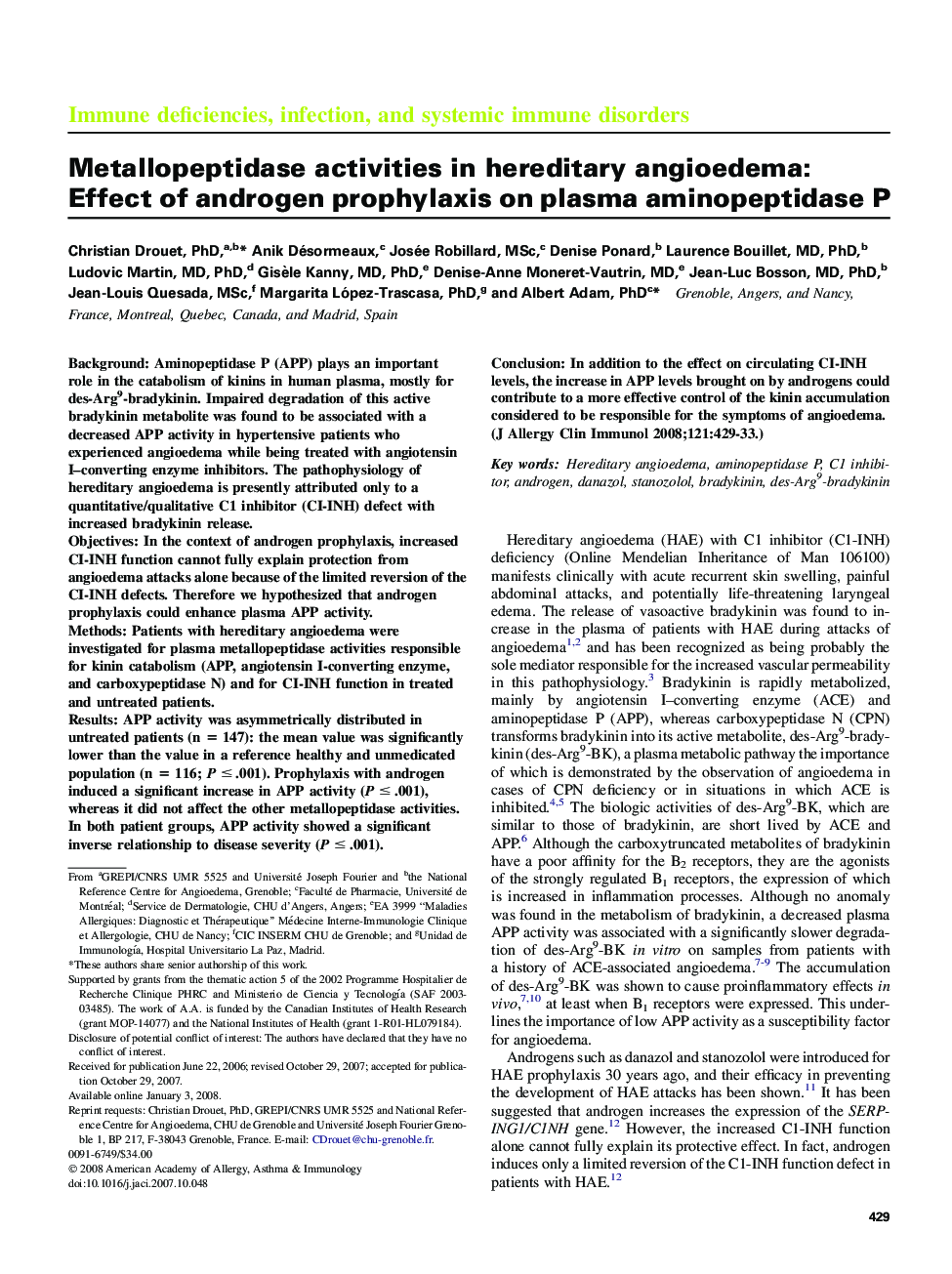| Article ID | Journal | Published Year | Pages | File Type |
|---|---|---|---|---|
| 3202769 | Journal of Allergy and Clinical Immunology | 2008 | 5 Pages |
BackgroundAminopeptidase P (APP) plays an important role in the catabolism of kinins in human plasma, mostly for des-Arg9-bradykinin. Impaired degradation of this active bradykinin metabolite was found to be associated with a decreased APP activity in hypertensive patients who experienced angioedema while being treated with angiotensin I–converting enzyme inhibitors. The pathophysiology of hereditary angioedema is presently attributed only to a quantitative/qualitative C1 inhibitor (CI-INH) defect with increased bradykinin release.ObjectivesIn the context of androgen prophylaxis, increased CI-INH function cannot fully explain protection from angioedema attacks alone because of the limited reversion of the CI-INH defects. Therefore we hypothesized that androgen prophylaxis could enhance plasma APP activity.MethodsPatients with hereditary angioedema were investigated for plasma metallopeptidase activities responsible for kinin catabolism (APP, angiotensin I-converting enzyme, and carboxypeptidase N) and for CI-INH function in treated and untreated patients.ResultsAPP activity was asymmetrically distributed in untreated patients (n = 147): the mean value was significantly lower than the value in a reference healthy and unmedicated population (n = 116; P ≤ .001). Prophylaxis with androgen induced a significant increase in APP activity (P ≤ .001), whereas it did not affect the other metallopeptidase activities. In both patient groups, APP activity showed a significant inverse relationship to disease severity (P ≤ .001).ConclusionIn addition to the effect on circulating CI-INH levels, the increase in APP levels brought on by androgens could contribute to a more effective control of the kinin accumulation considered to be responsible for the symptoms of angioedema.
